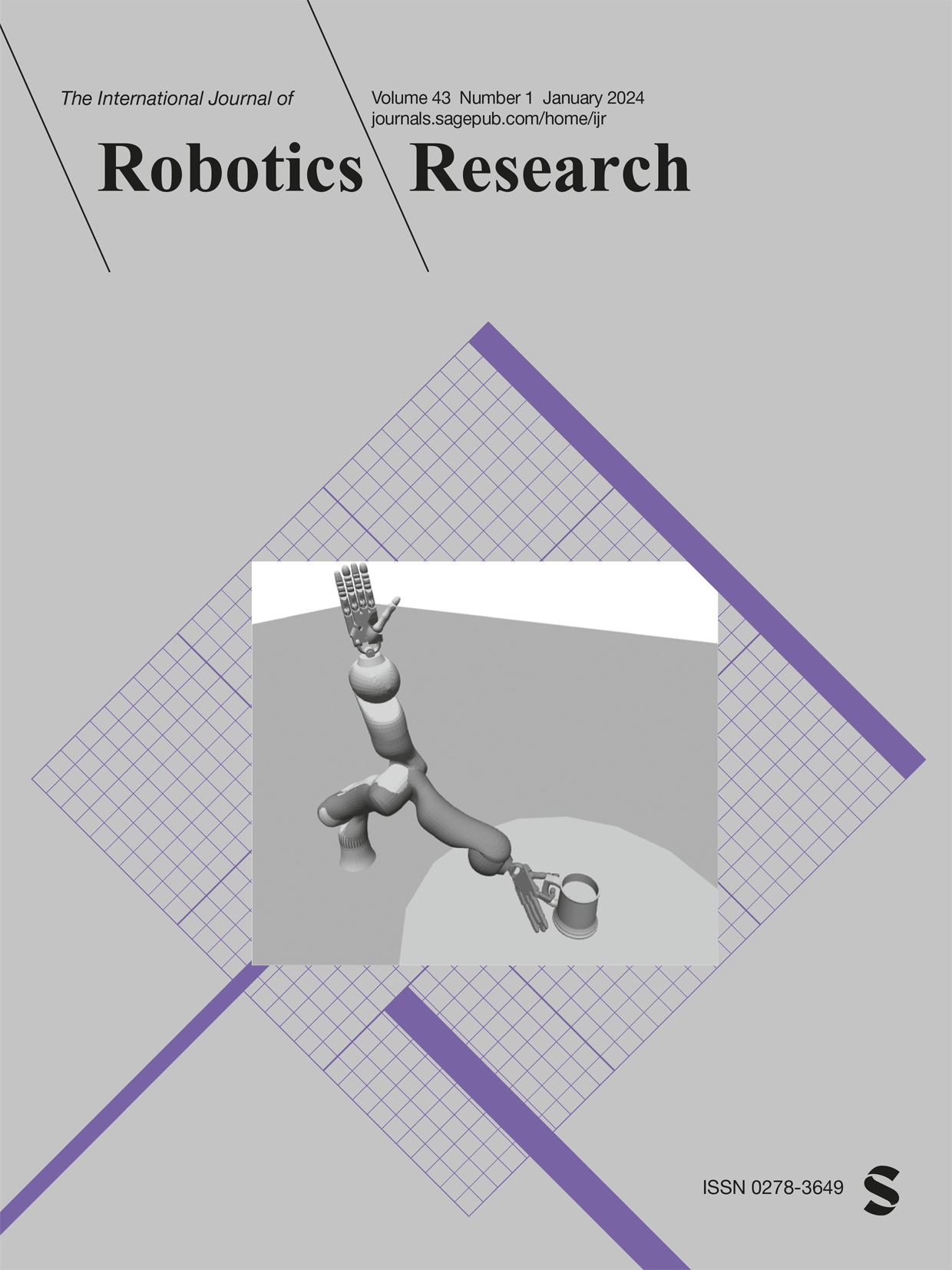基于学习特征的奖励学习诱导结构
IF 5
1区 计算机科学
Q1 ROBOTICS
引用次数: 16
摘要
奖励学习使机器人能够从人类输入中学习适应性行为。传统方法将奖励建模为手工制作的特征的线性函数,但这需要指定所有先验的相关特征,这对于现实世界的任务是不可能的。为了解决这个问题,最近的深度逆强化学习(IRL)方法直接从原始状态学习奖励,但这是具有挑战性的,因为机器人必须隐式学习重要的特征以及如何同时将它们组合起来。相反,我们提出了一种分而治之的方法:将人类输入的重点放在单独学习特征上,然后再学习如何将它们组合成一个奖励。我们为教学特征引入了一种新型的人工输入,并利用它从原始状态空间学习复杂特征的算法。然后,机器人可以学习如何通过演示、纠正或其他奖励学习框架将它们组合成奖励。我们在所有特征都必须从头开始学习的设置中演示我们的方法,以及一些已知特征的设置。通过首先将人类输入集中在特征上,我们的方法降低了样本复杂性,并在深度IRL基线上提高了学习奖励的泛化。我们在物理7-DoF机器人机械手的实验中证明了这一点,并在模拟环境中进行了用户研究。本文章由计算机程序翻译,如有差异,请以英文原文为准。
Inducing structure in reward learning by learning features
Reward learning enables robots to learn adaptable behaviors from human input. Traditional methods model the reward as a linear function of hand-crafted features, but that requires specifying all the relevant features a priori, which is impossible for real-world tasks. To get around this issue, recent deep Inverse Reinforcement Learning (IRL) methods learn rewards directly from the raw state but this is challenging because the robot has to implicitly learn the features that are important and how to combine them, simultaneously. Instead, we propose a divide-and-conquer approach: focus human input specifically on learning the features separately, and only then learn how to combine them into a reward. We introduce a novel type of human input for teaching features and an algorithm that utilizes it to learn complex features from the raw state space. The robot can then learn how to combine them into a reward using demonstrations, corrections, or other reward learning frameworks. We demonstrate our method in settings where all features have to be learned from scratch, as well as where some of the features are known. By first focusing human input specifically on the feature(s), our method decreases sample complexity and improves generalization of the learned reward over a deep IRL baseline. We show this in experiments with a physical 7-DoF robot manipulator, and in a user study conducted in a simulated environment.
求助全文
通过发布文献求助,成功后即可免费获取论文全文。
去求助
来源期刊
CiteScore
22.20
自引率
0.00%
发文量
34
审稿时长
6-12 weeks
期刊介绍:
The International Journal of Robotics Research (IJRR) has been a leading peer-reviewed publication in the field for over two decades. It holds the distinction of being the first scholarly journal dedicated to robotics research.
IJRR presents cutting-edge and thought-provoking original research papers, articles, and reviews that delve into groundbreaking trends, technical advancements, and theoretical developments in robotics. Renowned scholars and practitioners contribute to its content, offering their expertise and insights. This journal covers a wide range of topics, going beyond narrow technical advancements to encompass various aspects of robotics.
The primary aim of IJRR is to publish work that has lasting value for the scientific and technological advancement of the field. Only original, robust, and practical research that can serve as a foundation for further progress is considered for publication. The focus is on producing content that will remain valuable and relevant over time.
In summary, IJRR stands as a prestigious publication that drives innovation and knowledge in robotics research.

 求助内容:
求助内容: 应助结果提醒方式:
应助结果提醒方式:


